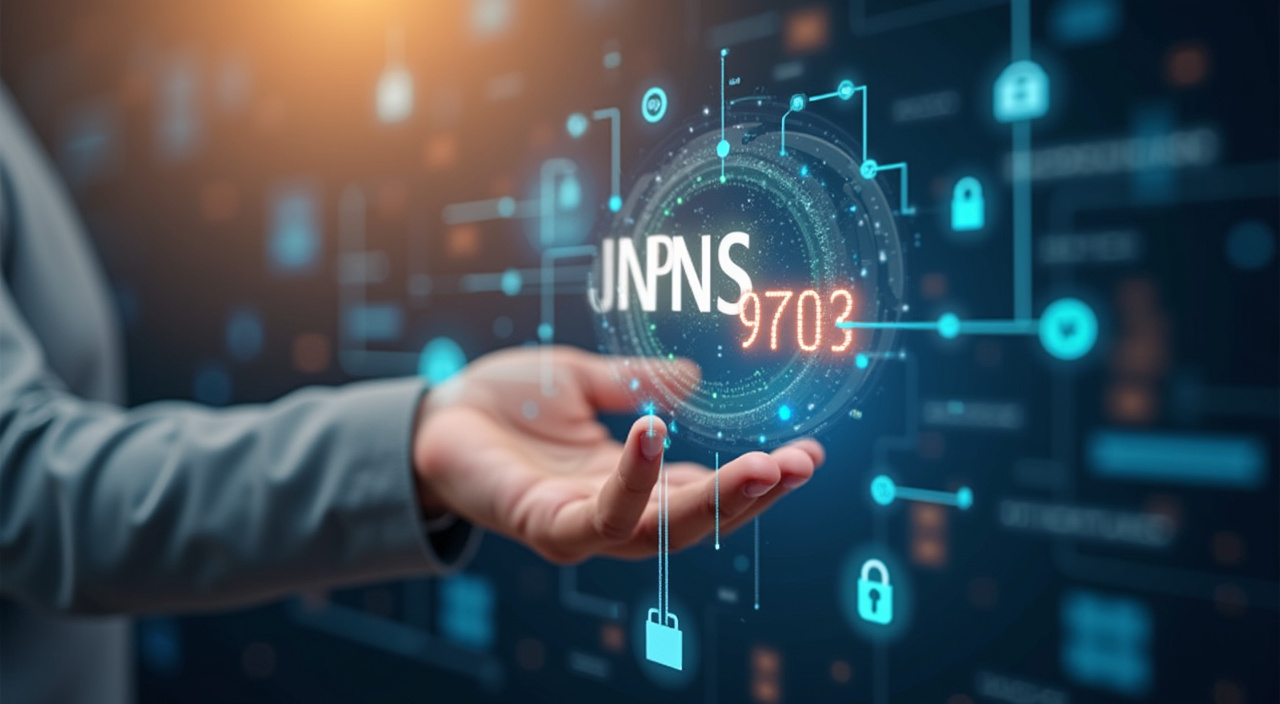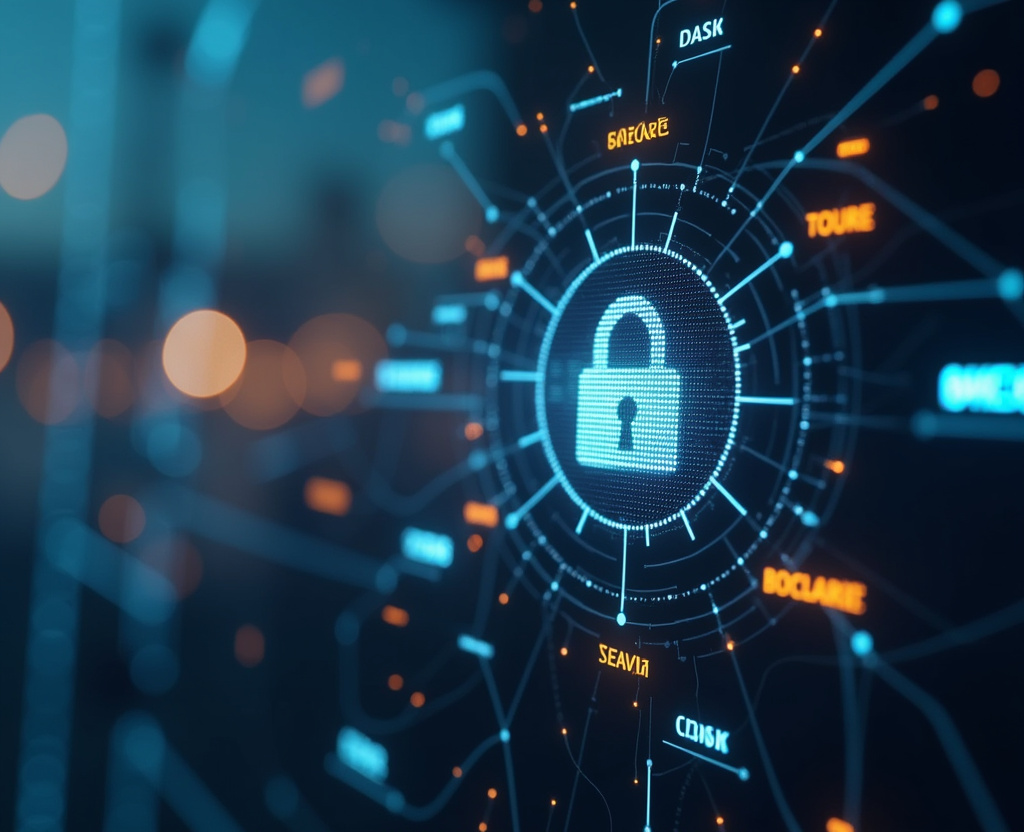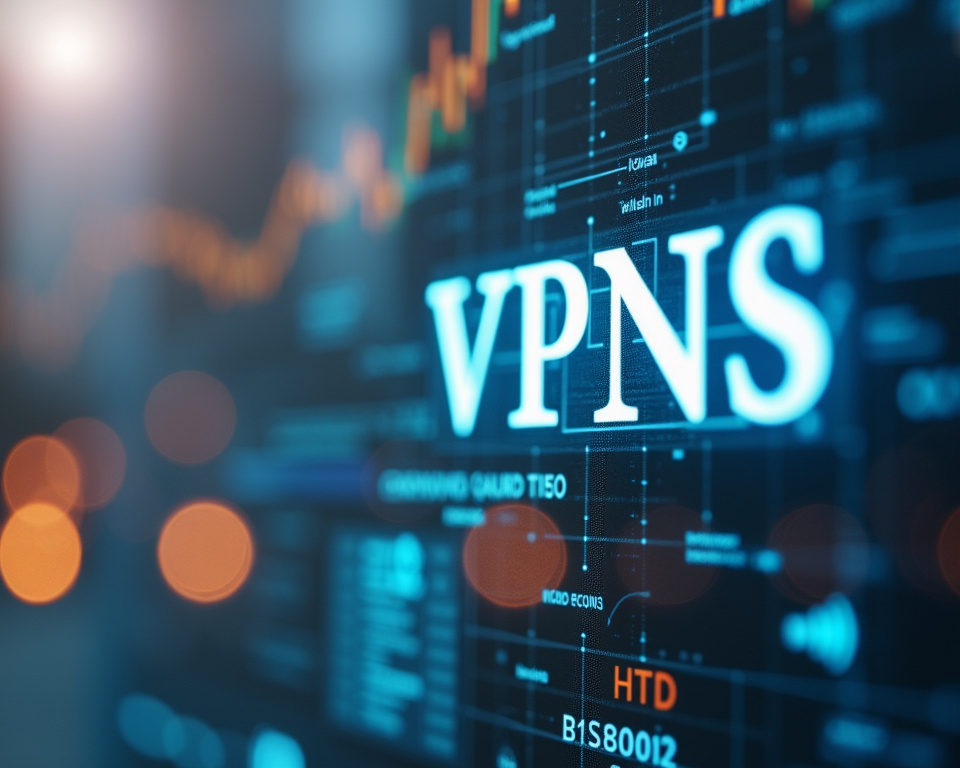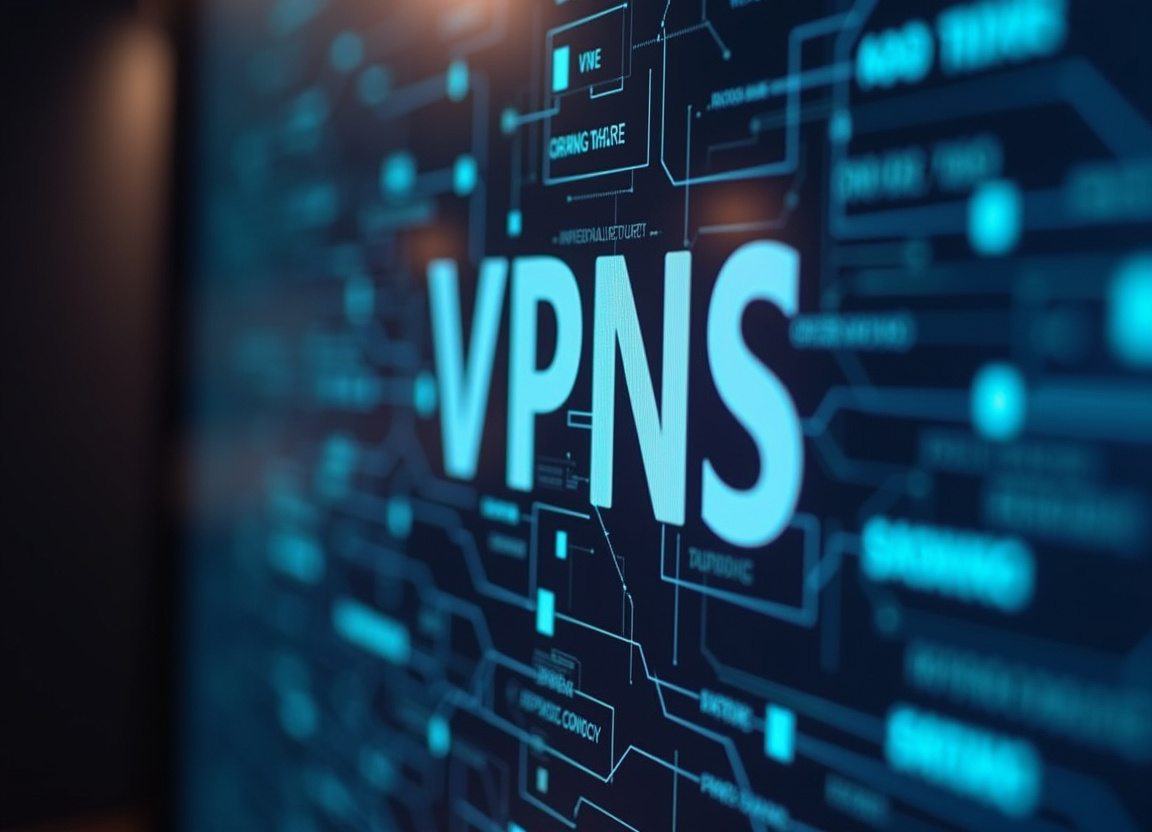VPNs for Real Estate Vendors: Protecting Contractual Communications
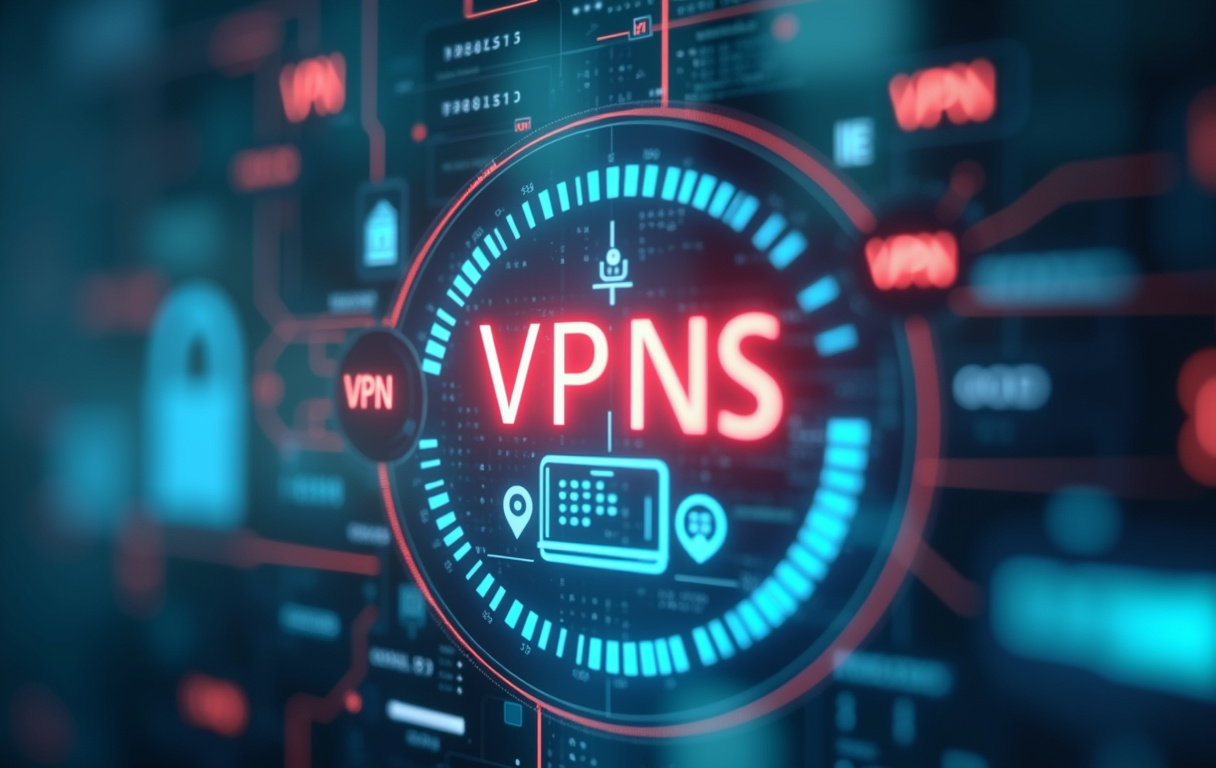
Table of Contents
real estate VPN
In the high-stakes world of real estate, where multi-million dollar deals hinge on secure communications and the meticulous handling of sensitive client data, the vulnerability of contractual agreements to cyber threats is a growing concern. Real estate vendors – agents, brokers, property managers, and legal professionals alike – are entrusted with a treasure trove of confidential information. This includes everything from clients' financial records and personal identification to proprietary business strategies and intricate details of ongoing negotiations.
A single data breach can result in devastating financial losses stemming from fraud and remediation expenses, irreparable reputational damage leading to loss of client trust, and the potential for significant legal repercussions in a world where data privacy laws are increasingly stringent. To proactively mitigate these risks and fortify their defenses against cyberattacks, a growing number of astute real estate vendors are incorporating Virtual Private Networks (VPNs) as an essential component of their cybersecurity infrastructure. A essentially acts as a digital cloak of invisibility, creating a secure, encrypted tunnel for all internet traffic emanating from a vendor's device or network.
This encryption transforms sensitive data into an unreadable format, effectively shielding it from prying eyes and ensuring the confidentiality of all contractual communications exchanged online. This is particularly critical in an industry that is increasingly reliant on digital communication channels, encompassing email correspondence, online document sharing platforms, cloud-based storage solutions, and even real-time messaging applications. The inherent vulnerabilities associated with using public Wi-Fi networks – a common occurrence for real estate vendors who are frequently on the move, attending client meetings, or conducting property viewings – further emphasize the crucial role of a robust security solution like a VPN.
These public networks are often unsecured, making them prime targets for hackers seeking to intercept sensitive information. By encrypting all data transmitted over these potentially compromised networks, VPNs proactively prevent malicious actors from gaining access to critical information such as login credentials, confidential financial details, and the intricate terms and conditions of binding contracts. Beyond the essential function of securing real-time communications, a VPN also plays an indispensable role in safeguarding the vast amounts of client data that real estate vendors are responsible for protecting.
Real estate professionals have a legal and ethical obligation to uphold the privacy of their clients, and a serious data breach can shatter client trust and inflict lasting damage on professional relationships. By implementing a VPN across their operations, vendors demonstrably reduce the likelihood of data breaches and reinforce their commitment to . The utilization of strong, industry-standard encryption protocols ensures that all client data remains confidential and inaccessible to unauthorized parties, even in the unfortunate event that a device is lost or stolen.
This enhanced level of data security is particularly important in jurisdictions that have enacted strict data protection regulations, such as the General Data Protection Regulation (GDPR) in Europe and the California Consumer Privacy Act (CCPA) in the United States, which impose significant penalties for non-compliance. Furthermore, through the robust encryption of all transmitted data, VPNs are crucial in upholding the inherent in real estate deals. In protecting against man-in-the-middle attacks, where cybercriminals attempt to intercept and modify real-time communications between parties, VPNs ensure that agreements remain tamper-proof from inception through final closing.
This is of utmost importance, as even the most minute, unauthorized alterations to contract terms can result in significant financial losses, protracted legal battles, and the jeopardizing of entire transactions. Therefore, employing a is not simply a superficial technological add-on, but rather a fundamental component of a holistic and proactive security strategy to safeguard business against cyber threats.
real estate VPN
The advantages of incorporating a extend beyond basic protection of digital data; they encompass improvements to operational efficiency, enhancing a business's regulatory compliance framework, and promoting secure remote access. Real estate dealings necessitate working with a number of individuals, including agents, lawyers, and banks, each having their own protocol and systems. A VPN creates a unified level of shared security by ensuring secure collaboration through all communications.
By standardizing security measures with a secure baseline across multiple channels, risks due to security gaps are reduced and workflows become more streamlined. A unified secure environment fostered by VPNs allows for greater productivity and effectiveness in real estate transactions. Secure remote access, an additional advantage, is a crucial service for real estate vendors, improving business operations by allowing secure access from any location.
This service is very useful to remote or travelling real estate professional. Thanks to VPNs, vendors can reliably access their office network as if they were working in person, facilitating data access, colleague communications, and secure transaction management remotely. The ability to access vital resources seamlessly improves productivity and allows vendors to react quickly to client requests while working remotely.
By implementing a VPN, a company can efficiently monitor and regulate data for regulatory compliance. Many legal jurisdictions implement stringent regulations regarding security of transactions and client data protection. Thus, a VPN demonstrates a commitment to regulatory requirements and assists in avoiding penalties.
VPNs offer security audits, which allow easy tracking and monitoring of data transfers, which is vital for showcasing adherence to legal standards. Additionally, VPNs defend against cybersecurity threats that increasingly target vendors, such as phishing scams and malware. VPNs route internet traffic through secure servers, blocking malicious websites and preventing malware downloads, decreasing the likelihood of data breaches and maintaining data and system integrity in proactive protection.
Supplementing cybersecurity, certain VPNs maximize efficiency by enhancing online transaction performance through traffic optimization and reduced latency. Features offered by some VPN services, like traffic prioritization and bandwidth acceleration, greatly boost the speed and dependability of online transactions. This improvement is critical for real estate vendors that depend on online platforms and apps to handle transactions and engage with clients.
In addition to improving communication and operations, VPNs also offer data encryption, making it more difficult for hackers to intercept critical data and safeguarding confidential information such as security numbers and bank details. In addition, VPN services offer DNS leak security, avoiding DNS queries from using default ISP servers and making vendor activity harder to discover. Overall, a VPN offers a variety of advantages that assist vendors in protecting data and streamlining processes.
By evaluating particular needs and assessing a range of VPN options, vendors are capable of improving their security posture and keeping a secure working environment, preventing cyber-attacks and maintaining business efficiency. Finally, the use of a trustworthy VPN makes sure that sensitive data is constantly safeguarded, establishing an atmosphere of security, confidence and privacy for both clients and agents.
VPN for vendors
Selecting the right demands careful assessment of multiple pivotal factors, spanning the stringency of security protocols employed, the geographical distribution of server locations offered, the bandwidth limitations (or lack thereof), and the overall cost-effectiveness of the service. It's crucial to recognize that not all VPNs are created equal; therefore, opting for a substandard service can unfortunately leave your valuable data vulnerable and exposed to potential cyberattacks, which is a risk no real estate vendor can afford to take. When embarking on the evaluation of different VPN providers, it is of paramount importance to prioritize those that demonstrate a clear commitment to utilizing robust and time-tested encryption protocols, such as the Advanced Encryption Standard (AES) with a 256-bit key length (AES-256).
This level of encryption is considered virtually impenetrable and is employed by governments and security agencies worldwide. Alongside strong encryption, a reputable VPN provider should also adhere to a strict and verifiable "no-logs" policy. This means the provider does not retain any records whatsoever of your online activities, browsing history, connection timestamps, IP addresses, or any other information that could potentially be used to identify you or your online behavior.
A clearly defined and rigorously enforced no-logs policy is essential for ensuring your privacy and anonymity while using the VPN. Another crucial element to consider is the geographical distribution of the VPN provider's server network. The proximity of the VPN server to your physical location can have a significant impact on your connection speed and overall performance.
Ideally, you should select a provider with a global network of servers strategically located in various regions around the world. This allows you to connect to a server that is geographically close to you, minimizing latency and maximizing your connection speed. Furthermore, a wide range of server locations can be beneficial for accessing region-locked content or bypassing geographical restrictions.
Bandwidth is another critical factor to consider, particularly if you frequently transfer large files, participate in video conferences, or engage in other bandwidth-intensive activities. Ensure that the VPN provider offers unlimited bandwidth to avoid any unexpected slowdowns, interruptions in service, or additional charges. Some VPN providers may impose bandwidth caps or throttle your connection speed if you exceed a certain usage threshold, which can be detrimental to your productivity and online experience.
Cost, while always a relevant consideration, should not be the primary or sole deciding factor in your decision. Investing in a high-quality VPN service is a relatively small price to pay for the invaluable peace of mind that comes with knowing your sensitive data is well-protected and your online activities are secure. While free VPN services may seem appealing at first glance, they often come with hidden costs, such as intrusive advertising, data logging, bandwidth limitations, slower connection speeds, and even the potential for malware infections.
It is generally advisable to avoid free VPNs altogether and instead opt for a reputable provider with a long-standing track record of security, reliability, and customer support. Before subscribing to a VPN service, take the time to thoroughly research and compare different providers, read reviews, and consult with other real estate professionals to get their recommendations.
VPN for vendors
Once you have diligently selected a reputable that aligns with your specific needs and security requirements, the next crucial step involves configuring it properly to ensure optimal protection and performance. Simply installing the VPN software is not enough; you must take the time to carefully customize the settings and enable the necessary features to maximize its effectiveness. One of the most important security features to enable is the "kill switch." This feature automatically disconnects your internet connection instantly if the VPN connection unexpectedly drops or becomes unstable.
The purpose of the kill switch is to prevent any data from being transmitted unprotected over your regular internet connection in the event of a VPN failure, ensuring that your sensitive information remains shielded at all times. Make sure the kill switch is active in your VPN settings. Creating a strong, unique password to safeguard your VPN account is crucial.
Avoid using easily guessable passwords or reusing passwords from other online accounts. Using a password manager to generate and store complex passwords is highly recommended. Additionally, consider enabling two-factor authentication (2FA) for an extra layer of protection.
2FA requires you to enter a second code from your mobile device in addition to your password when logging in, making it significantly more difficult for unauthorized individuals to access your account, even if they somehow obtain your password. Explore the advanced settings of your VPN software to fine-tune its performance and security. Look for options such as protocol selection, DNS leak protection, and automatic connection.
Different VPN protocols offer varying levels of security and speed. Experiment with different protocols, such as OpenVPN, IKEv2, and WireGuard, to see which one provides the best balance of performance and security for your specific needs. DNS leak protection prevents your DNS queries from being sent to your internet service provider's (ISP) servers, which can potentially reveal your browsing activity.
Make sure this feature is enabled to enhance your privacy. Automatic connection ensures that the VPN connects automatically whenever you start your computer or mobile device, providing continuous protection without requiring manual intervention. Regular updates are essential to keep your VPN software secure and functioning properly.
VPN providers frequently release updates to address security vulnerabilities, improve performance, and add new features. Make a habit of checking for updates regularly and installing them promptly. Educating your entire team about the importance of VPN usage and cybersecurity best practices is crucial for creating a security-conscious culture within your organization.
Train your employees on how to use the VPN software properly, recognize phishing scams, and avoid risky online behavior. Conduct regular security audits to assess the effectiveness of your security measures and identify any potential vulnerabilities. Consider hiring a cybersecurity consultant to conduct a professional assessment and provide recommendations for improving your security posture.
A real estate VPN is a powerful tool for protecting contractual communications and client data, but it is only one component of a comprehensive security strategy. By combining it with other security measures, such as strong passwords, multi-factor authentication, regular software updates, and employee training, you can create a robust defense against cyber threats and safeguard your business from financial losses, reputational damage, and legal repercussions.
real estate VPN
In conclusion, the integration of a represents a critical and increasingly indispensable measure for real estate vendors seeking to safeguard their contractual communications and ensure comprehensive in an era defined by escalating cyber threats. The real estate industry, with its high-value transactions and reliance on sensitive client information, presents a lucrative target for cybercriminals, making robust security measures paramount. By establishing a secure, encrypted tunnel for internet traffic, a VPN effectively shields valuable data from unauthorized access, mitigating the risk of data breaches, financial losses, and reputational damage.
Beyond the immediate benefits of enhanced security, implementing a VPN can significantly improve operational efficiency, streamline regulatory compliance, and enable secure remote access for real estate professionals on the go. The ability to securely access critical systems and data from any location empowers vendors to respond promptly to client needs, collaborate effectively with colleagues, and manage transactions seamlessly, regardless of their physical presence. Choosing the right requires careful consideration of several factors, including the strength of encryption protocols, the geographical distribution of server locations, the availability of unlimited bandwidth, and the reputation of the provider.
Prioritizing providers with a proven track record of security, reliability, and a strict no-logs policy is essential for ensuring the confidentiality and integrity of your data. Once a VPN is selected, proper configuration and ongoing maintenance are crucial for maximizing its effectiveness. Enabling features such as the kill switch, using strong passwords, implementing multi-factor authentication, and keeping the software up-to-date are all essential steps for maintaining a strong security posture.
However, it is important to remember that a VPN is only one piece of the puzzle. A comprehensive security strategy should also include other measures, such as regular security audits, employee training, and strong internal policies. Ultimately, investing in a is not just about protecting data; it's about building trust with clients, maintaining a competitive edge, and ensuring the long-term success of your business.
In a world where cyber threats are constantly evolving, proactive security measures are no longer optional – they are a necessity. By embracing a forward-thinking approach to cybersecurity and prioritizing the protection of contractual communications and client data, real estate vendors can navigate the digital landscape with confidence and secure their place in the market. The assurance of , coupled with dependable data privacy, establishes trust between clients and agents, offering a base of security and privacy.
Overall, by staying informed about modern safety measures, adopting the best practices, and continuously improving their programs of cybersecurity, real estate vendors are capable of efficiently resisting threats and safeguarding their businesses against the constantly shifting difficulties introduced in the digital age. As the real estate industry continues to embrace digital transformation, the importance of VPNs will only continue to grow. By taking the necessary steps to protect their clients and their businesses, real estate vendors can thrive in the digital age and secure a bright future for their industry.
Stay Updated
Get the latest VPN news, tips, and exclusive deals to your inbox.
